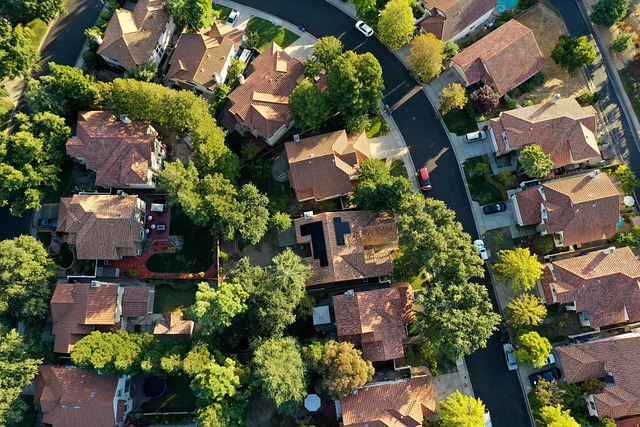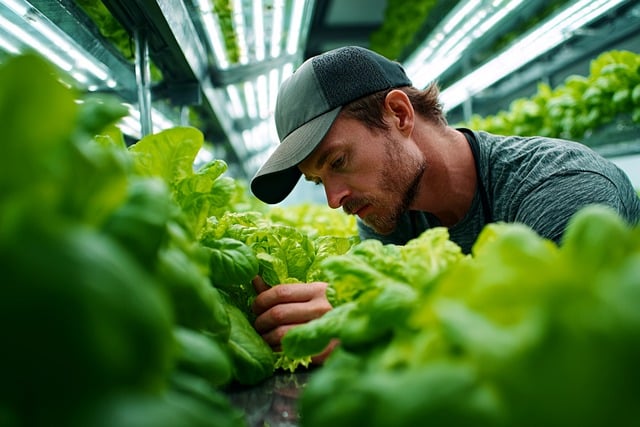Students can create eco-friendly college apartments by adopting sustainable practices such as upcycling, using energy-efficient lighting and low-VOC paints, incorporating houseplants, and choosing zero-waste lifestyles. They can reduce plastic consumption, compost organic waste, opt for digital resources, choose locally sourced food, and implement energy-saving strategies like LED bulbs and programmable thermostats. Colleges offer resources including recycling programs, community gardens, workshops, and student organizations to support these sustainable practices.
Embrace a greener lifestyle with these essential sustainable practices for college students living in apartments. From eco-friendly decorating tips to reduce waste, make healthier food choices, and boost energy efficiency, this guide covers everything you need to transform your space and live more sustainably. Discover local resources and engage with your community to foster an eco-conscious environment that benefits both you and the planet.
- Eco-Friendly Decorating: Transforming Your Space Sustainably
- Waste Reduction Strategies for College Students
- Sustainable Food Choices in Student Apartments
- Energy Efficiency Tips for Greener Living
- Local Resources and Community Engagement for Eco-Conscious Students
Eco-Friendly Decorating: Transforming Your Space Sustainably

Many college students are looking for ways to make their apartment more eco-friendly, and there’s no better place to start than with decoration. Eco-friendly decorating isn’t just about choosing secondhand furniture or opting for natural materials; it’s also about adopting sustainable practices that reduce waste and promote a greener lifestyle.
Students can embrace sustainable practices by getting creative with upcycling, using energy-efficient lighting, selecting non-toxic, low-VOC paints, and choosing decor pieces made from recycled or biodegradable materials. Additionally, incorporating houseplants not only adds a touch of nature to their space but also helps purify the air. By adopting these simple yet effective strategies, students can transform their college apartments into vibrant, sustainable homes that reflect their commitment to environmental responsibility.
Waste Reduction Strategies for College Students

College life offers a unique opportunity for students to embrace sustainable practices and minimize their environmental impact. One of the most effective waste reduction strategies is to adopt a zero-waste lifestyle. Students can start by bringing reusable water bottles, coffee mugs, and shopping bags to reduce single-use plastic consumption. Packing meals in reusable containers and opting for bulk foods instead of pre-packaged items can significantly cut down on packaging waste.
Additionally, composting organic waste and recycling materials like paper, glass, and metal are essential sustainable practices students can implement. Many colleges now have dedicated composting programs and recycling centers, making it easier than ever to dispose of waste responsibly. Encouraging the use of digital resources over printed materials and opting for energy-efficient appliances in college apartments further contributes to a greener lifestyle.
Sustainable Food Choices in Student Apartments

In college apartments, sustainable food choices are an accessible way for green-minded students to incorporate eco-friendly practices into their daily lives. Many student residences now offer fresh, locally sourced produce, reducing food miles and supporting nearby farmers. Additionally, some colleges partner with organic farms or implement community gardens, allowing students to get hands-on experience in sustainable agriculture.
Students can also make a difference by adopting simple habits such as composting organic waste, opting for reusable containers over disposable ones, and buying products with minimal packaging. Moreover, purchasing food in bulk or joining food co-ops can significantly reduce individual carbon footprints. By embracing these sustainable practices, students contribute to a greener campus environment while developing responsible habits that will benefit them long after graduation.
Energy Efficiency Tips for Greener Living

Making your college apartment more energy-efficient is a fantastic way for students to adopt sustainable practices and reduce their environmental impact. Start by replacing standard light bulbs with LED options, which use significantly less electricity and last much longer. Appliances like refrigerators, washing machines, and dishwashers should be Energy Star-rated models, designed to conserve energy without sacrificing performance.
Additionally, consider simple behavioral changes: unplug electronics when not in use, utilize natural lighting during the day, and maintain proper insulation to minimize heating and cooling needs. Programmable thermostats can help regulate temperature settings, ensuring energy isn’t wasted while you’re away or sleeping. By implementing these energy-saving strategies, students can actively contribute to a greener living environment both on campus and beyond.
Local Resources and Community Engagement for Eco-Conscious Students

Many colleges offer a wealth of local resources designed to support eco-conscious students. These range from recycling programs and compost initiatives to community gardens and sustainability workshops. Engaging with these resources is a powerful way for students to implement sustainable practices in their daily lives, reducing their environmental impact while also fostering a sense of community.
On campus, student organizations dedicated to green living often play a vital role in promoting eco-friendly habits. They organize events like Earth Day celebrations, lead campus cleanups, and advocate for more sustainable policies. By joining these groups, students can connect with like-minded individuals, participate in meaningful actions, and contribute to a broader movement towards a greener future.
